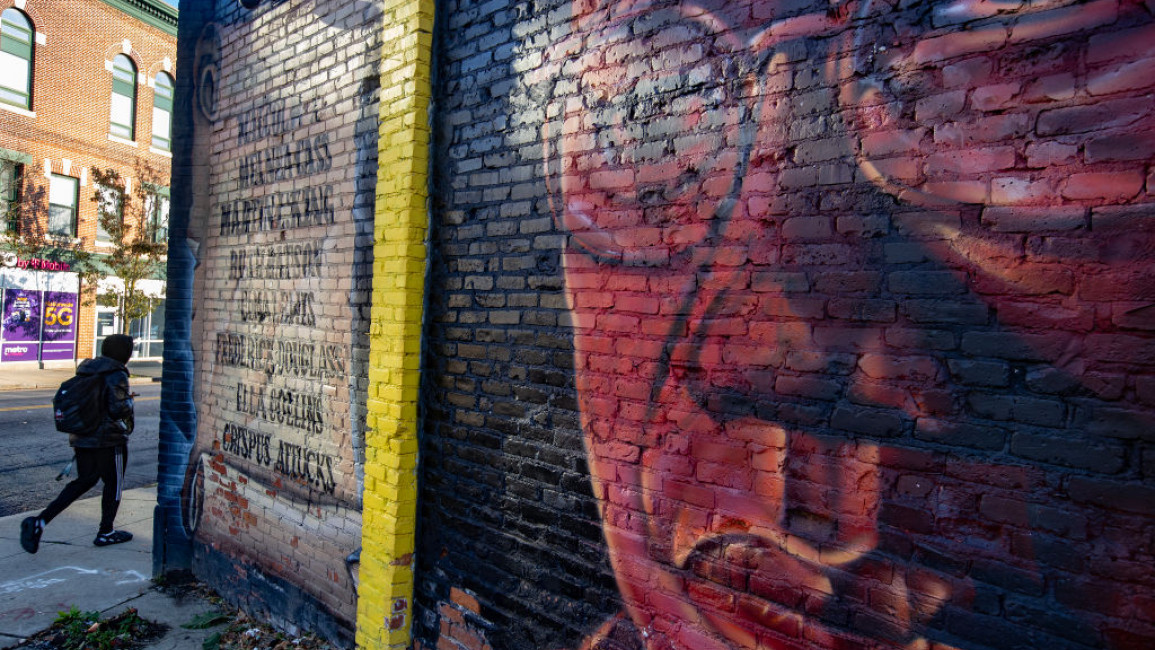We need a Free Palestine: What did Malcolm X say about Israel and Zionism?
On the anniversary of the assassination of Malcolm X in 1965, Palestinians remember him not only as the fiery civil rights leader who challenged American racism but also as a powerful advocate for Palestinian rights, part of his unwavering commitment to justice and self-determination.
In 1964, a visit to a Palestinian refugee camp in Gaza deeply impacted Malcolm X. Witnessing firsthand the displacement and suffering caused by the 1948 Nakba fostered a profound empathy. He declared, "Our problem in America is a problem that is worldwide," drawing parallels between the Palestinian struggle and the Black American fight for equality. He saw both as battles against oppression.
Malcolm X wasn't afraid to challenge the dominant narrative surrounding Zionism, the movement advocating for a Jewish homeland in Palestine at the expense of its native people, the Arab Palestinians. He questioned the historical justifications for land claims, asking, "Only a thousand years ago the Moors lived in Spain. Did that give the Spaniards the right to go back and take Spain from the people who were living there?" He saw Zionism as a form of colonialism, displacing Palestinians from their land and denying their right to self-determination.
Though initially sceptical of a two-state solution, Malcolm X's views seemed to evolve later in life. He began to see it as a potential stepping stone towards broader justice, emphasizing, "We need a free Palestine." He advocated for a solution that respected the rights of both Palestinians and Israelis, recognising the complexities of the conflict.
Malcolm X's voice played a crucial role in raising awareness about the Palestinian situation within the Black American community and challenging dominant narratives.
On Palestine, he said:
- "The problem that exists in Palestine is not a religious problem... It is a question of colonialism. It is a question of a people who are being deprived of their homeland." (1964, speech in Cairo)
- "Zionist logic is the same logic that brought Hitler and the Nazis into power... It is the same logic that says that because my grandfather came from Ireland, I have the right to go back to Ireland and take over the whole country." (1965, "Zionist Logic" essay)
- "We need a free Palestine... We don't need a divided Palestine. We need a whole Palestine." (1965, speech in Detroit)
Malcolm, MLK, and Muhammad Ali: The Civil rights movement and Palestine
Malcolm X was part of the African American Civil Rights Movement and was a contemporary of Martin Luther King Jr. and Muhammad Ali
Malcolm X's calls for Black empowerment and separatism clashed with King's commitment to nonviolence and integration. But despite this, King acknowledged Malcolm X's honesty and courage, while Malcolm X appreciated King's dedication to justice. However, differing ideologies and Malcolm X's criticism of King's approach kept them at a distance.
King was not known for supporting the Palestinian struggle and backed Israel's right to exist, although he later acknowledged the suffering of the Palestinian people and expressed concern about the impact of the 1967 Six-Day War.
Malcolm X was close to Muhammad Ali. Malcolm X, a powerful orator, served as a mentor to the young and charismatic boxer, Muhammad Ali. Ali, drawn to Malcolm X's message of Black pride, joined the Nation of Islam. Their public appearances amplified their voices, becoming powerful symbols of resistance.
However, after Malcolm X's break from the Nation of Islam, their paths diverged. Ali remained within the organization, publicly distancing himself from Malcolm X's criticisms. Some speculate pressure from within the Nation played a role in this shift. While their close friendship ended, their impact on each other and the movement remains undeniable. They paved the way for athletes to use their platforms to champion social justice.
One often overlooked aspect of Muhammad Ali's own activism was also his unwavering support for the Palestinian struggle.
He also saw parallels between their fight for self-determination and the Black American struggle for civil rights
In 1974, a visit to a refugee camp in South Lebanon cemented his stance. With the world watching, Ali declared, "I declare support for the Palestinian liberation struggle."
He spoke out against Israeli occupation of Palestinian territories, calling it unjust and unsustainable. He condemned the annexation of Jerusalem and other Palestinian lands, emphasizing the importance of human rights for all, including Palestinians.
While initially supporting the boycott of Israeli goods and services, Ali later distanced himself from it. He believed in dialogue and diplomacy, advocating for a peaceful resolution to the conflict. He supported a two-state solution that respected the rights of both Palestinians and Israelis.
Born Malcolm Little in 1925, Malcolm X's life was marked by struggle and transformation. Growing up in a family facing racial persecution, he encountered racism firsthand. After a period of hustling and incarceration, he embraced Islam and the Nation of Islam, becoming a powerful voice for Black pride and self-determination. His speeches challenged racial injustice and resonated with millions. He later broke with the Nation, embracing a broader vision of liberation.
Malcolm X was shot dead by three gunmen on February 21, 1965 as he prepared to deliver a speech in a Manhattan ballroom.
Three members of the Nation of Islam were convicted of Malcolm X's murder in 1966: Muhammad Abdul Aziz, Khalil Islam, and Thomas Hagan (also known as Talmadge Hayer). However, in 2021, Aziz and Islam were exonerated after new evidence revealed they were not present at the time of the shooting. Hagan remains the only person convicted of the crime. The circumstances surrounding Malcolm X's assassination remain complex and controversial. The involvement of other individuals or organizations beyond those convicted has been long debated, and investigations continue to seek further information.


![President Pezeshkian has denounced Israel's attacks on Lebanon [Getty]](/sites/default/files/styles/image_684x385/public/2173482924.jpeg?h=a5f2f23a&itok=q3evVtko)





